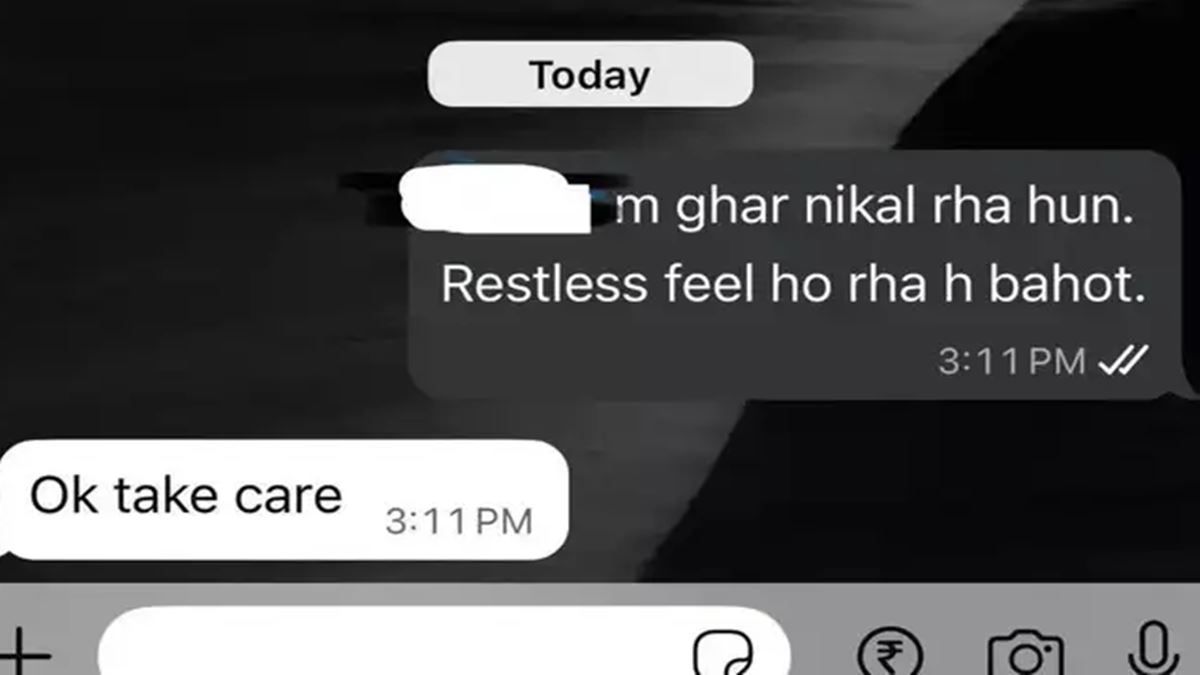Burnout is an alarming reality for working professionals navigating deadlines and workloads. It’s the feeling of being completely mentally exhausted without any motivation (and you are on autopilot). Moreover, the pressure doesn’t ease after clocking out either. In fact, it many times follows you home, weighing down heavily on your personal time as well. Being emotionally drained over time can lead to a serious meltdown one day, from which bouncing back may be difficult.
Steps employees can take to prevent burnout
Sheena Sood, psychologist and counsellor at P D Hinduja Hospital and Medical Research Centre, Mahim, said, “That constant fatigue, emotional detachment, or inability to concentrate, it may not just be a busy season. Persistent workplace exhaustion is often a sign of something deeper, emotional burnout. As work demands grow, mental health can take a backseat, leading to serious consequences that often go unnoticed.”
Sheena Sood shared 4 ways employees can do at a personal level in the workplace to alleviate stress:
1. Seek clarity, early on
- When expectations or responsibilities feel unclear, initiating open conversations with managers can help align goals and reduce ambiguity.
- Clarity brings confidence and reduces stress.
2. Build micro-breaks into your day
- Short breaks, stepping away for five minutes, stretching, or simply unplugging from screens.
- This can refresh your mind and improve focus throughout the day.
3. Celebrate small wins
- Taking time to acknowledge your efforts, no matter how small, helps maintain motivation and a positive outlook.
- It’s a simple way to stay connected to your progress.
4. Explore support resources
- If your workplace offers wellness programs, mental health sessions, or access to experts, take advantage of them.
- These resources are designed to offer support before stress becomes overwhelming.
What organisations can do to support emotional wellbeing in employees
Dr Noel Coutinho, co-founder and chief business officer at ekincare, said, “Employers play a pivotal role in creating a mentally healthy workplace, one that doesn’t just react to burnout but actively works to prevent it. Corporate mental health efforts must evolve from reactive to proactive. Systems should be built to foster emotional resilience before burnout sets in. According to ekincare Report, out of 2,095 reported mental health cases, over half were linked to personal or emotional stress rather than workplace pressures, highlighting the need for holistic wellness approaches that go beyond office walls.”
Dr Coutinho shared these 5 ways organisations can help reduce employee fatigue:
- Manager training: Equip managers to identify emotional distress and respond with empathy and without judgment.
- Mental health check-ins: Conduct regular well-being check-ins to catch early signs of emotional strain.
- Therapy and EAPs: Provide access to therapy sessions or Employee Assistance Programs to support mental health needs.
- Flexible work options: Offer flexible schedules or remote work opportunities to help reduce stress and improve balance.
- Open conversations: Normalise mental health discussions in team meetings and organisational forums to build psychological safety.
How to make mental health kit for yourself at home
Stress doesn’t magically disappear when you leave work; in fact, it lingers and can even spiral into anxiety as you start dreading the next day. Dr Ajit Dandekar, head of psychiatry and mental health at Nanavati Max Super Speciality Hospital, Mumbai, suggested preparing a personal mental health kit at home.
He said, “Creating a mental health kit doesn’t only mean filling a box with commercially available ‘stress-relieving’ toys. The strategy to create a toolkit should focus on collecting personally and scientifically meaningful objects. Individuals with anxiety and depression relate to coping methods like religious practices, social acceptance, planning, and seeking emotional support tools that help them feel anchored and proactive. Other than guided activities like mindfulness and journaling, small group discussions (maybe with parents or siblings) significantly reduce social anxiety and improve well-being. A truly effective mental health kit isn’t just a collection of practices; it’s a balance of internal strategies like mindfulness and acceptance, and external support through communal coping. ”




















